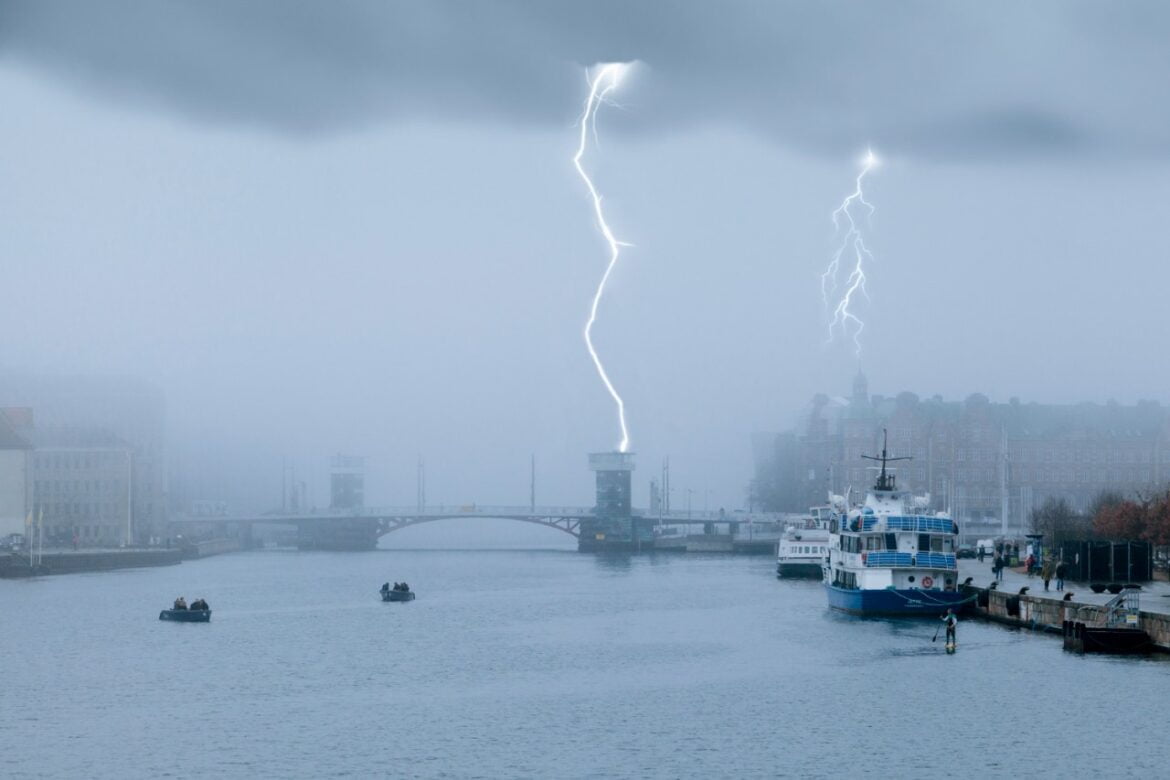During the last few days, Gulf countries witnessed intense storms accompanied by record-breaking rain and battering winds, which caused severe damage. Among the worst-affected countries were the UAE, Oman, Saudi Arabia, and Bahrain.
Following these unprecedented and sudden storms, questions have been raised about the extent to which climate change exacerbated their intensity. Indeed, increasingly studies link the occurrence of extreme weather phenomena such as storms, hurricanes, and floods to climate change.
At the same time, these extreme weather events bring to mind the disaster that occurred in Libya last year. Indeed, in the city of Derna, flash floods killed thousands and caused devastating destruction. Likewise, in 2022, Pakistan was ravaged by climate change-driven floods that submerged two-thirds of the country, displacing millions and resulting in billions in economic loss and damage.
These extreme climate phenomena come several months after the UN’s World Meteorological Organization warned that 2023 was the warmest year on record, outperforming other years by a significant margin. And, for the first time, global warming breached 1.5 degrees across an entire year, with expectations that 2024 will top last year’s record.
Commenting on the devastating storms in the Gulf, Greenpeace Middle East and North Africa Campaigns Officer Kenzie Azmi said: “The severity of these storms is alarming, and what’s most concerning is the prospect of even more frequent and intense occurrences in the future if we fail to a rapid and just transition to renewable energy”.
She added: “The storms left behind huge losses and disrupted many businesses even after they subsided, and it has become scientifically confirmed that these extreme weather incidents are related to the climate crisis and that we must expect more of them or even other extreme climate incidents that may come in the form of extreme heat and drought.”
Azmi continued: “What is happening is an indication that our region is not equipped to confront this crisis, despite the financial means in some countries. Therefore, we must play a leading role in the global climate movement to confront this crisis by strengthening our adaptation efforts, phasing out fossil fuels, and adopting a rapid and just transition to Renewable energy, as the countries of the world pledged at the historic Cop28.”
Two years to save the world
These extreme weather events came shortly after strong words by Simon Stiell, Executive Secretary of the United Nations Framework Convention on Climate Change, during a speech at Chatham House in London. Stiell warned that the world has only two years left to take action to avoid the worst effects of climate change.
The UN climate chief called on countries to intensify work to implement national climate plans and double climate financing, adding that the G20 countries, which represent 80 per cent of global greenhouse gas emissions, must demonstrate a strong commitment to updated national climate action plans.
Indeed, in another report issued last March by the World Meteorological Organization (WMO), it was highlighted that these extreme weather events undermine social and economic development and that the cost of climate inaction is higher than the cost of climate action, emphasising the need to switch to renewable energy.
The report showed that records have been broken again and, in some cases, significantly exceeded, including levels of greenhouse gases, surface temperatures, ocean heating and acidification, sea level rise, Antarctic sea ice cover, and glacier loss.
Here, Secretary-General of the United Nations, António Guterres, said: “Sirens are blaring across all major indicators… Some records aren’t just chart-topping, they’re chart-busting. And changes are speeding-up.”
Frightening temperatures in the Sahel region
Meanwhile, today, the World Weather Attribution (WWA) released a new study revealing how climate change caused an unprecedented and intense heatwave in the Sahel that struck vulnerable populations last April.
During this time, an area across the Sahel and West Africa experienced extreme heat, with maximum temperatures reaching over 45 degrees Celsius, while Kayes in Mali recorded 48.5 degrees Celsius on April 3.
Extremely high temperatures were reported across the Sahel, including Senegal, Guinea, Mali, Burkina Faso, Niger, Nigeria and Chad.
In many of these countries, electricity was cut during the heatwave, making it particularly difficult for residents to cope with the extreme temperatures.
Forty-four people buried in one cemetery in Bamako
The WWA said that heatwaves are arguably the deadliest type of extreme weather event, and while the death toll is often underreported and unknown until months after the event, a “surge” in hospital admissions and deaths were reported from the Gabriel Touré hospital in Bamako, Mali between 1-4 April.
The hospital recorded 102 deaths during the four-day period, far more than anticipated. Across the entire month of April, the hospital recorded 130 deaths.
Hospital reports indicate that heat likely played a role in many of the deaths, and as many as 44 people were buried in one cemetery in Bamako on Friday, April 5.
The study called for a strengthening of vital infrastructure such as electricity, water and healthcare systems to adapt to the increasing frequency and intensity of extreme heat, which requires increased investment to ensure reliable access and service delivery.
Stepping up climate action
In parallel to these devastating events, various efforts are being made globally to garner support for action to combat the intensifying climate crisis.
Indeed, today, at the 16th edition of the World Future Energy Summit (WFES), the European Union (EU) launched the EU-GCC Cooperation on Green Transition project, a joint platform to exchange best practices and expertise between the EU and the GCC stakeholders.
The platform aims to support the promotion and adoption of policies and technologies for the GCC’s green transition, fostering a collaborative business environment between EU green tech companies and their counterparts in the Gulf region.
WFES concluded today in Abu Dhabi at the Abu Dhabi National Exhibition Centre, having run from 16-18 April 2024.
By Hadeer Elhadary, Lead Journalist, ESG Mena – Arabic



